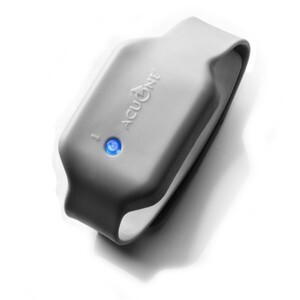Acupressure Wrist Bands to Be Tested for Chemo-related Nausea
by
Lynn Shapiro, Writer | April 02, 2009

Acupressure Wristband
Trials to test acupressure wrist bands as a drug-free alternative for chemotherapy-related nausea are to take place at the University of Liverpool.
More than 75 percent of patients undergoing chemotherapy experience nausea, which can negatively affect their quality of life. Acupressure wrist bands have already been proven to reduce the symptoms of travel sickness by applying force to the Nei Kuan pressure point on each wrist.
Now, a national study in the UK of more than 700 patients at nine cancer centers will measure the cost and clinical effectiveness of acupressure wrist bands in controlling chemotherapy-related nausea.
Led by Professor Mari Lloyd-Williams, of the University's Academic Palliative and Supportive Care Studies Group, the team will analyze a wide swath of patients undergoing chemotherapy. The study will include patients diagnosed with several different types of cancer, to find out which patient groups would most benefit from the acupressure bands.
Commenting on the trial, Professor Lloyd-Williams said, "Developments in anti-emetic drugs used to combat nausea and vomiting have reduced the symptoms suffered by chemotherapy patients but nausea remains a debilitating and poorly controlled symptom."
She adds that "patients rank nausea and vomiting amongst the most distressing side effects of chemotherapy. In some cases, poorly controlled symptoms can lead to patients choosing to stop potentially curative treatment. These symptoms also may contribute to a loss of social life, prevent people from working, and lead to anxiety and depression."
Lloyd-Williams says that if the trials are successful, clinicians would be able to control debilitating nausea with drug-free therapy. The wrist bands could potentially help patients to maintain a good quality of life while undergoing chemotherapy, Lloyd-Williams says.
The research will be carried out in collaboration with the University of Manchester, Salford University and the University of Plymouth in England.
